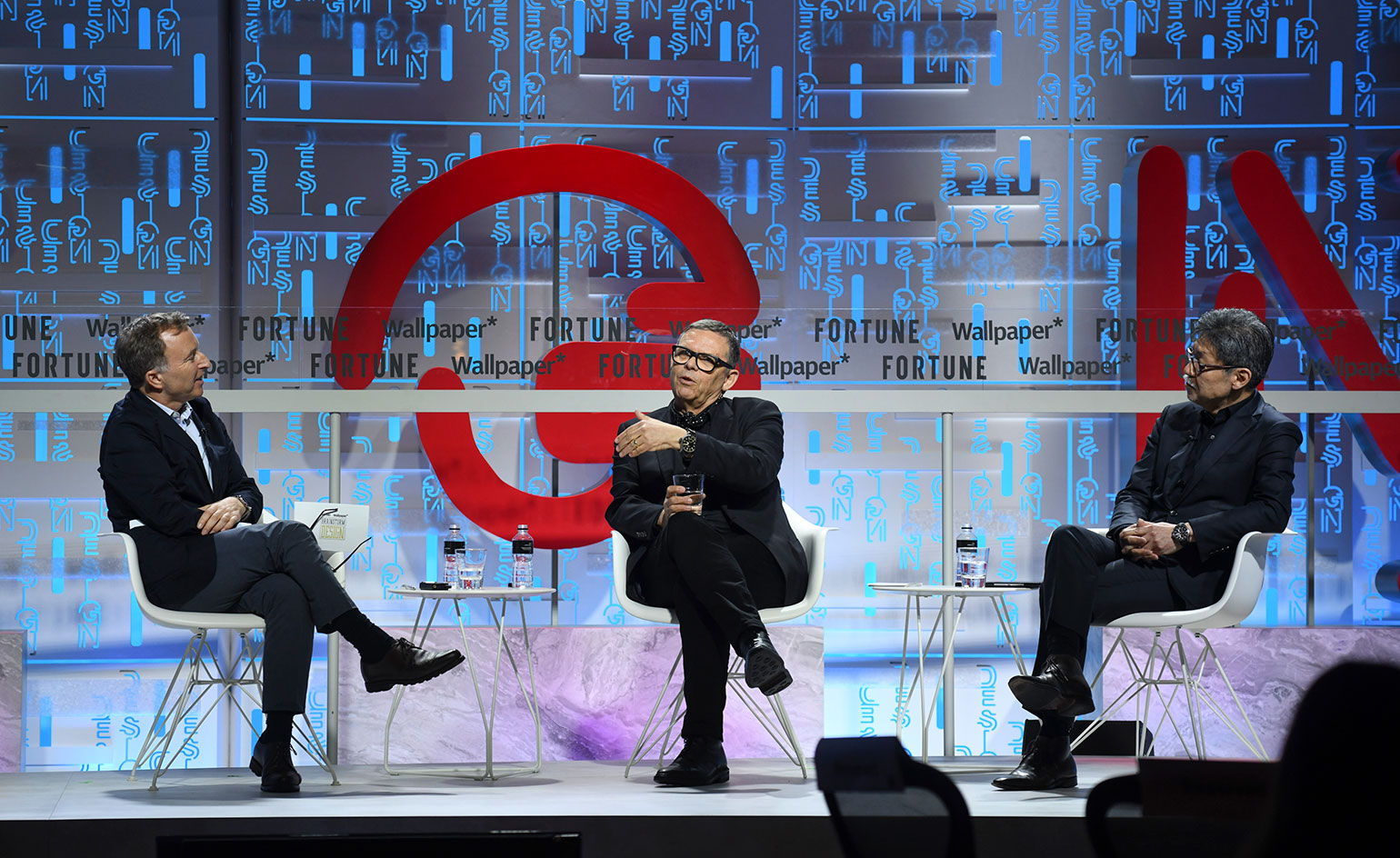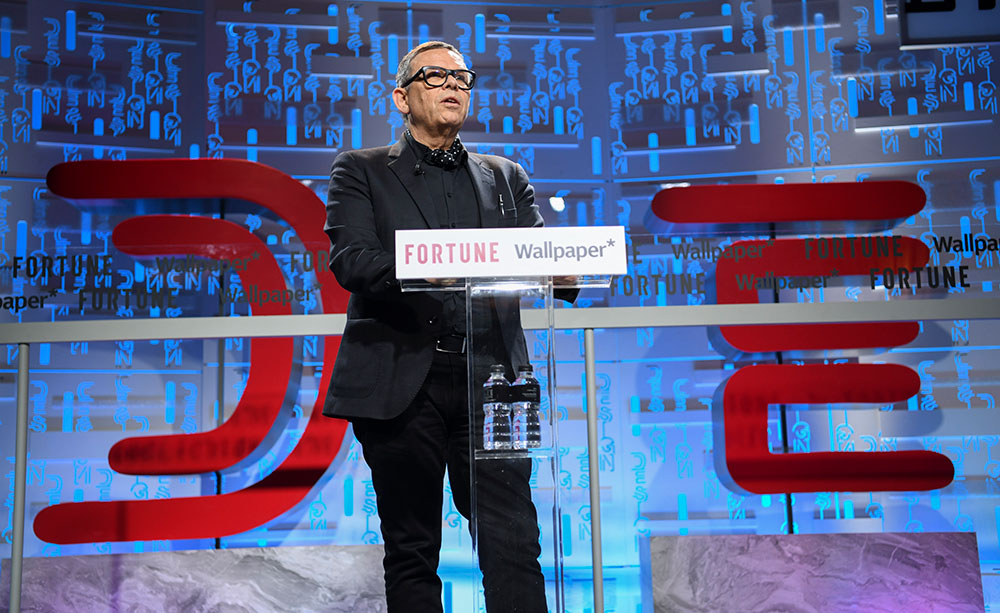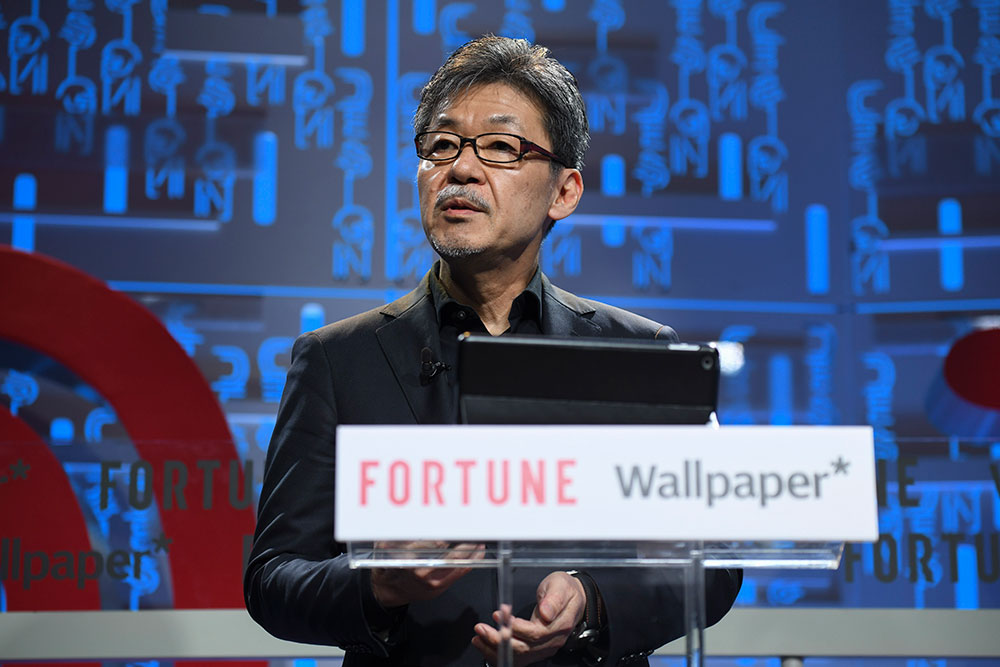
Receive our daily digest of inspiration, escapism and design stories from around the world direct to your inbox.
You are now subscribed
Your newsletter sign-up was successful
Want to add more newsletters?

Daily (Mon-Sun)
Daily Digest
Sign up for global news and reviews, a Wallpaper* take on architecture, design, art & culture, fashion & beauty, travel, tech, watches & jewellery and more.

Monthly, coming soon
The Rundown
A design-minded take on the world of style from Wallpaper* fashion features editor Jack Moss, from global runway shows to insider news and emerging trends.

Monthly, coming soon
The Design File
A closer look at the people and places shaping design, from inspiring interiors to exceptional products, in an expert edit by Wallpaper* global design director Hugo Macdonald.
There are big changes in the automotive world, say two leading car designers who spoke on Wednesday at Brainstorm Design, a conference in Singapore co-organised by Fortune and Wallpaper* magazines.
Ikuo Maeda and Peter Schreyer took different paths to the top of their industry. Tokyo-based Maeda is the son of Matasaburo Maeda, a legendary designer at Mazda, and followed his father’s footsteps to the company in 1982, rising to his current role as head of design in 2000. Meanwhile, Frankfurt-based Schreyer was design chief for Audi, Volkswagen, and then Kia, before becoming president and head of design management at Hyundai.
They share similar hopes for advances in car technology. But they have given thought too to bleaker prophecies – some have suggested that the sharing economy, and thus the decline of individual transport, may transform the car into ‘a mere commodity, mobility tool for the masses,’ says Maeda. ‘Though at Mazda we believe that there will still be people who see their car as their friend, partner, and a member of their family. That a car is something special and irreplaceable.’

Peter Schreyer addressing the Brainstorm Design conference 2019.
Schreyer points out that cars have always been symbols of freedom, recalling how he happily drove off at the age of 17 as soon as he earned his license. Now algorithms and artificial intelligence seem to be getting in the way of this freedom. ‘We have all these programmes that learn about us and can make decisions for us. So we are losing the culture of fantasy.’
‘Artificial intelligence should be thought of as intelligent assistance,'
Peter Schreyer, Hyundai
‘In the olden days when you wanted to go from one place to another, you looked on the map,’ he continues. ‘You had a sense for navigation like a pigeon. Nowadays you just put on the navigation system in your car and you drive, looking at the screen.’

Ikuo Maeda of Mazda speaking at Brainstorm Design 2019.
‘I think artificial intelligence should be thought of as intelligent assistance. We need to redefine what freedom means in this new era, and not just be entertained and ruled by machines. They cannot replace human creativity [...] The Bauhaus would often quote the Greek philosopher Protagoras, who said “man is the measure of all things”. We as designers must keep this in mind,’ says Schreyer.
‘A truly beautiful car can transform bleak city spaces and colour the city anew,’
Ikuo Maeda, Mazda
‘What I’m afraid of,’ follows Maeda, ‘is that once we put our attention to innovation and technology, we don’t have any time to think about beauty. We have to think both ways.’ At Mazda, his mantra has been ‘car as art’ – using aesthetic allure to reinforce the connection between rider and car. He brings up the RX Vision Coupe as an example. In Japan, people have an appreciation for the way light changes throughout the four seasons, which they call Utsuroi. This inspired a flowing form for the Vision Coupe that leverages reflected light while the car is in motion, ‘to make it come alive’. ‘A truly beautiful car can transform bleak city spaces and colour the city anew,’ he adds.
Receive our daily digest of inspiration, escapism and design stories from around the world direct to your inbox.
On a more pragmatic level, Scheyer suggests that the beauty of a car, and thus its emotional charge is essential to brand building too. ‘If a brand wants to survive, it needs a soul. It needs to tell a story, and it needs to stand for something. So I don’t think we’ll ever end up with cars that are neutral boxes. We will continue to design for the human experience.’
TF Chan is a former editor of Wallpaper* (2020-23), where he was responsible for the monthly print magazine, planning, commissioning, editing and writing long-lead content across all pillars. He also played a leading role in multi-channel editorial franchises, such as Wallpaper’s annual Design Awards, Guest Editor takeovers and Next Generation series. He aims to create world-class, visually-driven content while championing diversity, international representation and social impact. TF joined Wallpaper* as an intern in January 2013, and served as its commissioning editor from 2017-20, winning a 30 under 30 New Talent Award from the Professional Publishers’ Association. Born and raised in Hong Kong, he holds an undergraduate degree in history from Princeton University.